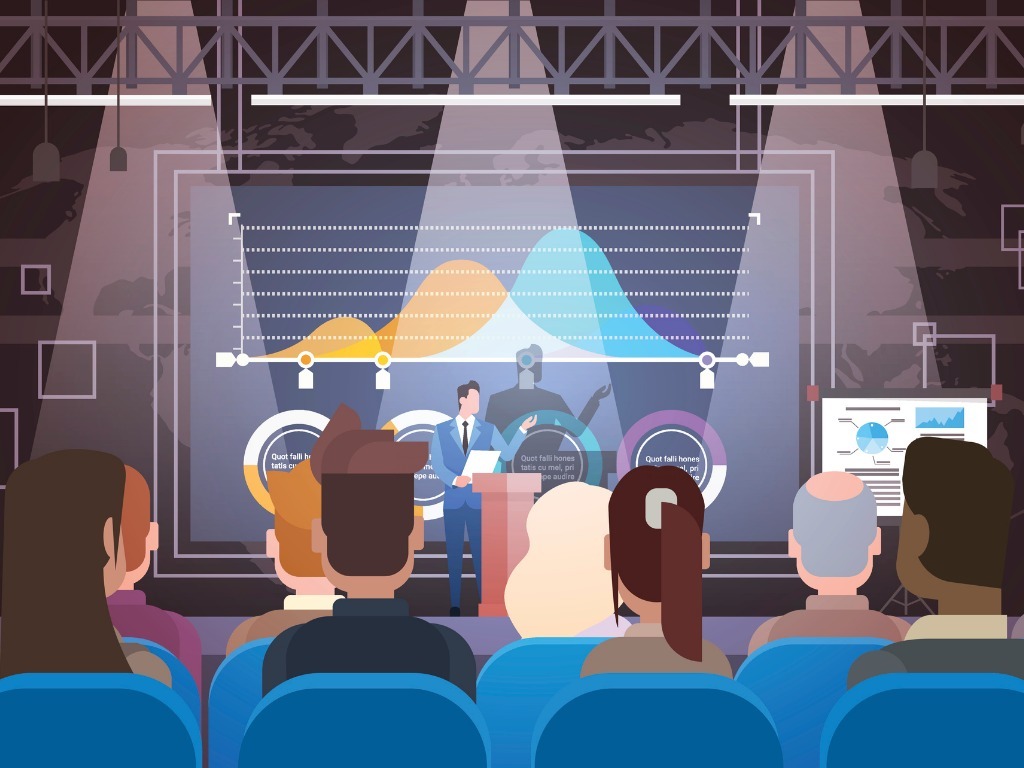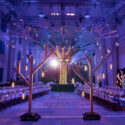
Kate Kassar details her top tips for managing audio-visual (AV) requirements for an event
An industry figurehead recently told us that even she had been stumped by a recent AV quotation she had received. I have therefore put pen to paper to help you turn these technical quotations into plain and simple English.
1. Know your own brief
- How many people?
- How formal is the occasion?
- Do you need a stage, lectern, lapel mics & full conference set-up with back projection? Or, is it informal or a simple set-up where e.g. plasma screens will do the job?
- Will you need to set up the night before or on the day?
- Will there be time to take down on the same day?
- Will technical staff be working long hours or overtime?
- Is the event in a public building (e.g. a museum), where you will have a very short turn-around time?
- Do you have translation requirements? If so, will it be done in a booth or by whispering; consecutive or simultaneous? Will the translation only be one-way (e.g. English into local language) or two-way i.e. with local language back into English? Or even three-way i.e. English, local language, alternative languages)
2. Know your AV basics
Do you require
- Back or front projection?
- Lectern mics vs roving mics (wired or wireless)?
- Projector screen vs plasma screen?
- Uplighters; colourwash; spotlights?
- Specific broadband speeds; Wi-Fi strength; back-up (for e.g. video playback w/in presentations)?
3. Have background knowledge at the ready
Ask the venue if there is a particular set-up that they recommend or if there are configurations which don’t work.
4. Get more than one quotation
In the same way that you will have looked at more than one venue, consider more than one AV supplier. You will probably find that their equipment is similar, but you may find different levels of staffing which can seriously affect the cost.
5. Go through the quotation with your AV supplier
Work through the quotation with a fine-tooth comb. Ask everything you feel you need to – no question is a stupid question if you need to know the answer.
Your two biggest questions are ‘what?’ and ‘why?’ What is a DI box and what does it actually do? Why should I choose a projector with 8,000 lumens rather than with 5,000? What does this particular piece of equipment do and why is it integral to our set-up? A good account manager will be able to explain what and why to you in plain English.
6. How is staffing charged?
How many staff does the supplier suggest? Do your two or three quotes differ vastly in the amount of staffing they suggest for roughly the same equipment set-up? If you are using some in-house equipment will there be an in-house technician on hand who will be free of charge thereby saving you money? How tight is the set-up time? For example, if you use a museum or other public building with a one-hour set-up time, your staff costs will probably be double the standard rate.
7. Become an expert
Learn your way around technical equipment so that next time you can not only analyse a quotation, but you can discuss it with knowledge and gravitas with your supplier – that way you will never be provided with more than you need or overcharged. Once you have mastered this, you will be able to negotiate with confidence.
8. Think through worst-case scenarios
For example,
- someone forgets their laptop.
- the venue’s broadband goes down or the Wi-Fi signal is too weak.
- the presenter has not submitted their slides.
- the venue does not hold a public performance music licence.
Create a backup plan to cover all eventualities.
You do not need to be a technical guru to gain a good understanding of an AV quotation. You need to know your own brief and requirements back to front, you need a basic knowledge of AV and the tenacity to ensure that your supplier strips down the technical detail and presents you with the ‘what’ and the ‘why’ to match your event requirements.
Build your knowledge with each quotation and you too will become a master of the AV trade.












